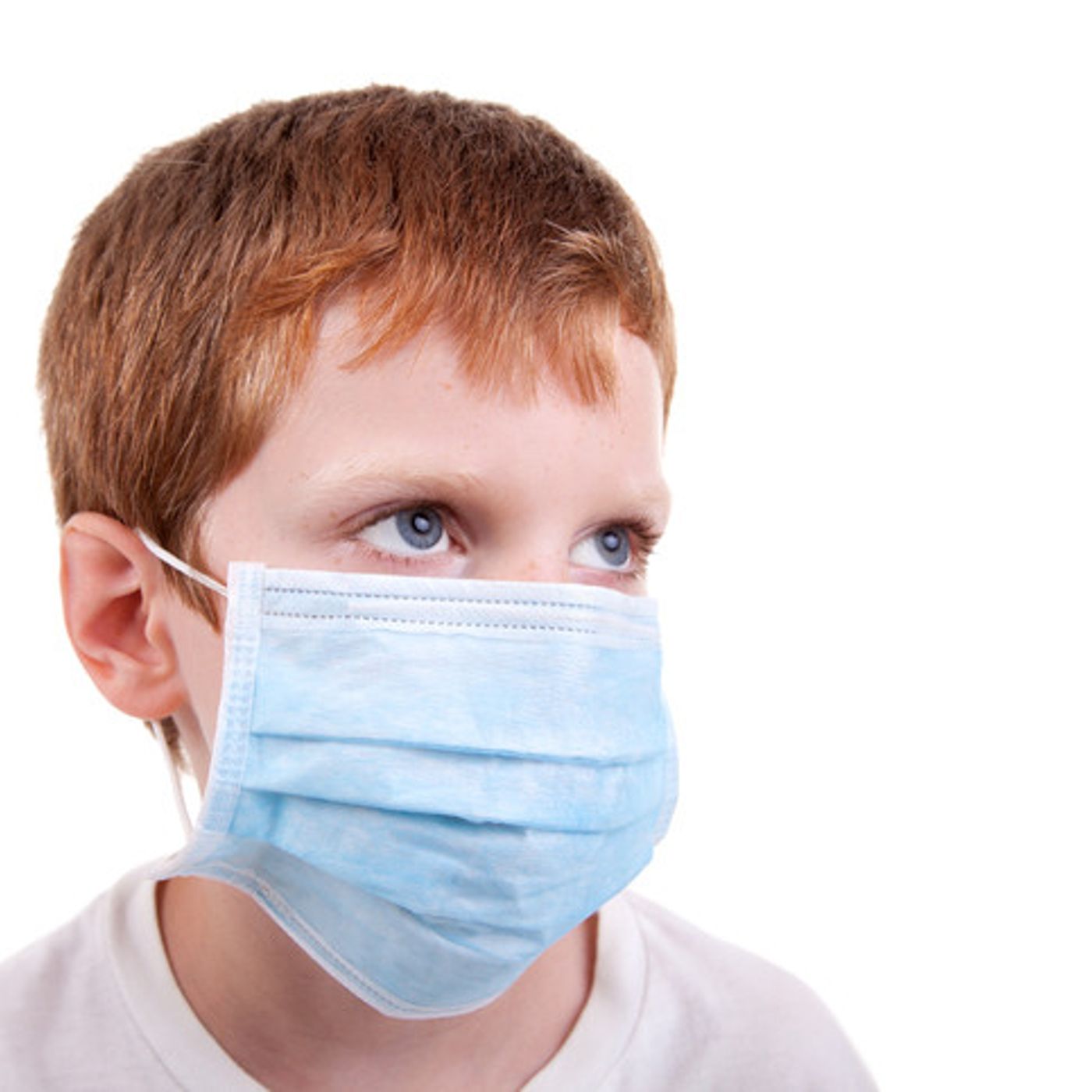
🎤 PODCAST • 1-Phobias 2-Getting a Life ~ 1-My son has a severe germ phobia 2-I can't find my life purpose.

www.drkenner.com Answers Your Questions
Deep Dive
- Children often mimic their parents' behaviors and concerns.
- A lack of understanding about germs, which are invisible, can lead to irrational fears.
- Parents should provide a balanced understanding of germs, emphasizing the existence of both harmful and beneficial bacteria.
- Educating children with factual information and calming reassurances can help mitigate phobias.
- Encouraging open communication with children about their fears can lead to better understanding and resolution.
Shownotes Transcript
The Selfish Path to Romance. Download Chapter 1 for free at drkenner.com. Dear Dr. Kenner, my son Mikey is almost six years old. My wife and I are very clean with our house and kitchen. In the last two weeks, my son has been obsessed with germs and asks, is this good for me? type questions while eating any meal. We are not Howard Hughes, but we like to stay clean. Howard Hughes had a germ phobia at the end of his life.
Regarding dirt, we wash before meals, we take baths every other day, we don't touch doggy poop, and we don't eat food that has touched the floor. This has become a huge issue with him and with us as a family. I also have twin two-year-olds, and his statements encourage the girls' outlook.
So this is pretty serious if he's not involved in daycare. I'm worried. Any thoughts on this or what to advise?
Now, your son, Mikey, is probably looking for good standards. And if you've told him, clean yourself, wash your hands before every meal, he may do what most kids do. They mimic their parents' behavior. I know kids also rebel against their parents, but in this case, he's mimicking it. And he may believe what you tell him. There are germs here. There are germs on your hands. You've been outside.
And he may take that seriously, not knowing what the heck germs are, because germs aren't something like dirt that you can see. Germs are invisible. And he also may have heard something on TV or from other sources. If he heard, if you don't wash your hands, you might get sick like your aunt did. She's been throwing up all night. And little Mikey has thrown up before. He doesn't want to throw up, and he starts to develop a germ phobia.
Or it may be something innocent like, I know your hand slipped when you ate your piece of chocolate, the very last one, and say it fell on a clean kitchen floor, but the floor is teeming with germs that could make you very sick or could kill you. Do you know what is on that floor? Now, obviously, that's way overstated. A parent should never do that. They may say the cats and dogs have been walking on it, and they bring in germs from the outside, and your shoes track in the mud, and
And so he may have developed a germ phobia from that. Or he may have developed a germ phobia. When you mention this, I ran and got one of my books that I had for my kids from the story of Louis Pasteur. This is a kid's book. Now, in this book, Louis Pasteur is looking for these ugly little, they look like upside down black raisins with mean teeth, mean eyes in them.
called germs. And then you get this darling little boy, Joey. It's all cartoon characters. And Joey gets bitten by a dog that's frothing at the mouth. And the dog has these little mean creatures in them called germs. And Joey gets so very sick that he almost, almost, almost dies. But then he gets a needle. And in the needle, there are little army men in this needle that are about to be shot into little Joey. And
And on the most graphic page, visually graphic page, my husband is looking at it now, you have all of these horrible little eyes peering out of a black, just a black background. These are all the germs. And then you turn on the light and all of those little raisin creatures, but with red faces and ominous eyes and sharp teeth.
are staring at you. And those are germs. Those are called the terrible germs. And they don't want the magical soldiers to kill them. What Louis Pasteur developed. Now, if a kid reads this book and he's really young, like six years old, he doesn't have the context of what a germ is and that there are good germs. We need to have bacteria in our gut and in our mouth.
So if you could help educate him, show him that there are good germs, and give him reasonable standards, it's okay to eat an occasional thing off the floor. You won't die. Even if you get a cold.
You recover. You have an immune system that's phenomenal. So you can teach him good standards while still being reasonable. If he's at a picnic and he drops a piece of chocolate, let him eat it. Like I told you earlier, I ate the piece of lobster that fell on the ground. I rinsed it off and ate it again. Thank you. So hopefully that helps with him. You want to give him facts. Also listen carefully to him. Say to him, honey,
Honey, tell me what you know about germs. And he may say, Well, I saw that the germs killed the monster on the TV, or Grandma died, and I heard it was from germs she had. And, you know, he may have some thought content that's out of context, and you can help him with that. You can educate him. You may have a budding doctor on your hands. He may become a doctor as he grows up if he's got an interest in germs. And here's a little more from Dr. Kenner. And here's the case I talked about earlier.
Okay, so we know she's going through some grief. Her father died, or maybe not. Maybe it was good riddance. You know, if he was an alcoholic and did a lot of damage in her life and left her with a mortgage. She's looking for people for... She's salvaging animals. She's looking for people for...
She continues,
I've been trying to get used to the idea of living alone. I had a six-year feudal relationship with a guy who was a drinker, an alcoholic. Then I ran into my former boyfriend, Frank, also an alcoholic. I had a relationship with him three times before and lost him three times before. We started dating again, and I thought it wouldn't work because he's still drinking. But then he went into detox, and he's had 80 clean days.
And he says he's going to move 400 miles to live with me, but he never acts on it. And I've had a lot of trouble finding work, too. I've had a lot of work experience, so what I decided to do was to pick up a part-time job at a restaurant, and I employ myself as a painter. Times are tough, and I'm trying to keep afloat. I'm trying to find things to look forward to. Now, that's what I underlined here. I'm not happy, not able to please myself enough.
so the iguana doesn't cut it, nor do these alcoholic boyfriends. And I'm not able to find peace within myself. I'm an artist, and I've wanted to write a book for a long time. I think the lack of close friends is a big problem. I've got no one to talk to. I'm on Welbutrin, which is a pill, and I'm trying to quit smoking. I don't drink any alcohol, and I'm in somewhat good health. So what do you do in that sense, in that case? This is from Cindy.
Well, I would try to focus on what you love in life, Cindy. And if you're just stringing along, if the romance of the sky is stringing you along, you don't want to continue a romance like that. You want to be able to branch out, but you need an action plan. You can't just wait for things to happen. Now, I know you've been looking for a job. I would continue doing that. But I would also, in some spare time you have, maybe sign up for a writer's group and
Or get on the web and go to writers' groups. There's a book by Ayn Rand on the art of writing nonfiction and the art of fiction, which you can get at theaynrandbookstore.com. There's another wonderful book, Freelance Writing for Magazines and Newspapers, by Marsha Yudkin, which you could pick up.
So you can start to enjoy that career on the side. Plus, you may meet people. It would serve two purposes. You would start to develop some friends who share your interest in writing or in art, if there's a different type of art, painting or sculpture that you like.
you can get involved with that in your spare time. In terms of romance, perhaps you'll find a man who shares that interest too. So I think you're casting your net in the wrong direction for alcoholics, and it may be due to having had a father as an alcoholic.
Sometimes you hear the phrase that women marry men like their fathers. You don't want to make that mistake because sometimes, unless you have a good father, but in this case, not your father's worst traits. So I hope that helps you out. For more Dr. Kenner podcasts, go to drkenner.com and please listen to this ad. Here's an excerpt from The Selfish Path to Romance, the Serious Romance Guidebook by clinical psychologist Dr. Ellen Kenner and Dr. Edwin Locke.
One way to actively and respectfully listen to your partner is to put yourself in each other's shoes. If you are upset because your partner forgot to pay the electric bill, imagine how you'd feel if the tables were turned. This helps you empathize with his or her feelings. Help your partner focus on the essential issue. If he or she is meandering, refocus your partner by gently asking, "What is your main concern?" or "How would you sum up the problem?"
If your partner is angry, hurt, or sad, you want to acknowledge the strong emotions or nonverbal messages. You seem to feel strongly about this, or I noticed you just wince. What exactly are you feeling? You can download Chapter 1 for free by going to drkenner.com. And you can buy The Selfish Path to Romance at Amazon.com.